Coordination Matters
Whocouldanode?
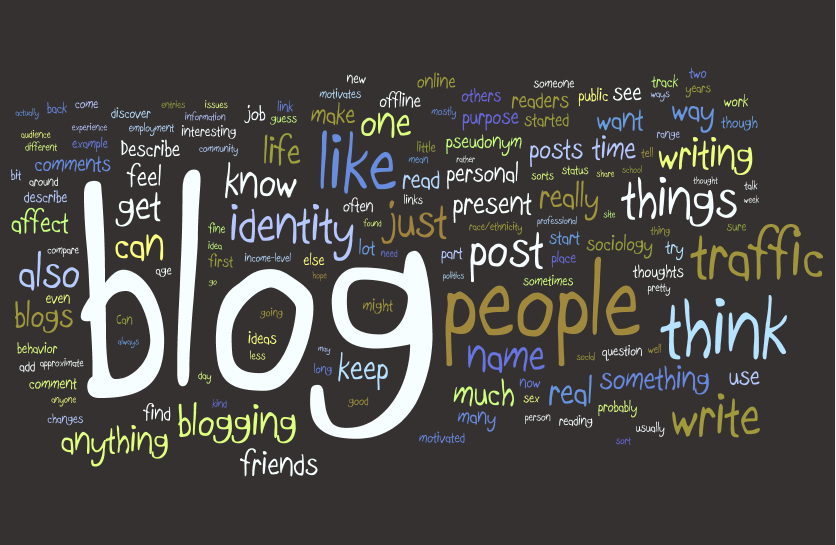
A Twitter follower sent out a link to my May 2018 post “Bolton Dismantles White House Global Health Security Team.”
While the immediacy of Twitter sometimes makes long-form blogging less urgent, the latter does provide a catalog of one’s thinking at a time and allows revisiting more easily than the former.
My commentary, in full:
This is monumentally stupid. While global health has only relatively recently been brought under the “national security” umbrella, it’s the obvious place for it. The NSC, created in 1947, is the foremost interagency coordinating body. At its top level, it’s where the President meets with his cabinet officials to deal with matters requiring a whole-of-government response. It’s constituent bodies, notably the Deputies Committee and various interagency working groups, are how the White House coordinates virtually all national policies. The model is so well-regarded that it has spawned spin-offs, notably the National Economic Council and the Homeland Security Council (the latter of which is sometimes rolled up into a super-NSC and sometimes independent).
If Bolton is uncomfortable with Ziemer for some reason, perhaps seeing him as an “Establishment” figure, then fire him and replace him with a competent ally. But it’s madness to take expertise in dealing with pandemics out of the NSC.
That held up pretty well, if I do say so myself.
The responses from pro-Trump commenters, not so much.
Beth Cameron, who served as senior director for global health security and biodefense on the NSC before it was dismantled, explains why:
The U.S. government’s slow and inadequate response to the new coronavirus underscores the need for organized, accountable leadership to prepare for and respond to pandemic threats.
In a health security crisis, speed is essential. When this new coronavirus emerged, there was no clear White House-led structure to oversee our response, and we lost valuable time. Yes, we have capable and committed global and national disease-prevention and management organizations, as well as state and local health departments, all working overtime now. But even in prepared cities like Seattle, health systems are struggling to test patients and keep pace with growing caseloads. The specter of rapid community transmission and exponential growth is real and daunting. The job of a White House pandemics office would have been to get ahead: to accelerate the response, empower experts, anticipate failures, and act quickly and transparently to solve problems.It’s impossible to assess the full impact of the 2018 decision to disband the White House office responsible for this work. Biological experts do remain in the White House and in our government. But it is clear that eliminating the office has contributed to the federal government’s sluggish domestic response.
[…]
Its absence now is all too evident. In his remarks Wednesday night, the president talked about travel bans and the resilience of the U.S. economy but made little specific mention of the public health crisis unfolding across America — exactly the kind of detail a dedicated NSC pandemics infrastructure would have pushed to address. A directorate within the White House would have been responsible for coordinating the efforts of multiple federal agencies to make sure the government was backstopping testing capacity, devising approaches to manufacture and avoid shortages of personal protective equipment, strengthening U.S. lab capacity to process covid-19 tests, and expanding the health-care workforce.
The office would galvanize resources to coordinate a robust and seamless domestic and global response. It would identify needs among state and local officials, and advise and facilitate regular, focused communication from federal health and scientific experts to provide states and the public with fact-based tools to minimize the virus’s spread. The White House is uniquely positioned to take into account broader U.S. and global security considerations associated with health emergencies, including their impact on deployed citizens, troops and regional economies, as well as peace and stability. A White House office would have been able to elevate urgent issues fast, so they didn’t linger or devolve to inaction, as with coronavirus testing in the United States. It would be in charge of sharing information and coordinating our public health and humanitarian response with partners and allies. And it would work now to prepare the United States and the world for the next pandemic, including by developing incentives for global leaders and governments to rapidly finance and fill identified gaps.
Pandemics, like weapons of mass destruction and climate change, are transnational threats with potentially existential consequences. No single department or agency can be responsible for handling them. Pandemic threats may not arise every year, but the White House should constantly prepare for them. We can’t afford for federal decision-makers to waste time relearning old lessons when they should be innovating and acting.
Covid-19 wasn’t preventable, but it was predictable. Hopefully, its impact can still be limited. But it is well past time for the U.S. government to show the leadership required for an effective domestic and global response. We need to start sprinting. Come April and May, no one will wish the United States had done less.
In partial defense of Bolton, many critics of the Obama Administration’s foreign policy, myself among them, argued that the NSC structure had become bloated, often impeding decisionmaking and frequently having relatively junior staffers bypassing the chain of command.
But, as my immediate reaction to the news demonstrates, it was obvious that pandemic response needed a place in the NSC structure. People in the departments need to be able to do their jobs. But crisis response requires coordination and pandemics, in particular, need constant advance planning. It’s too late to put a team together once an outbreak hits.

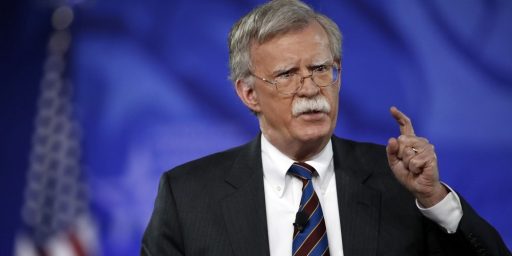
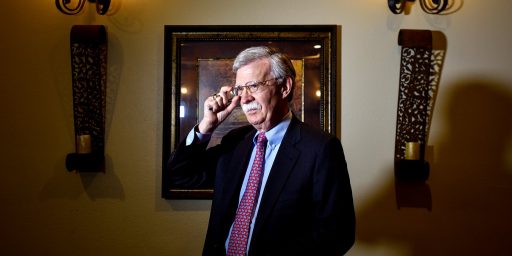
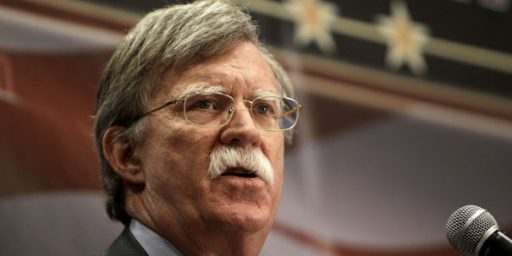
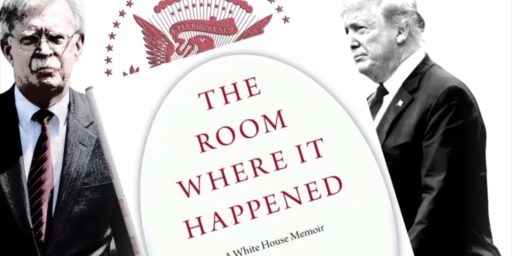
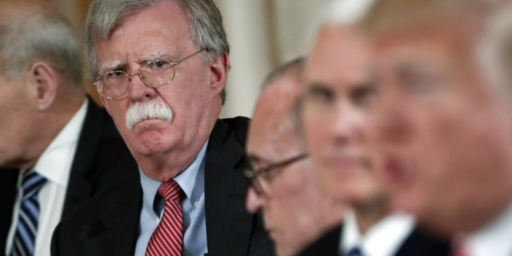
Yeah, I reread that article after seeing the tweet that referenced it.
Not to speak ill of the banned, but it’s striking to discover someone who so recently took the position that the administration has done nothing wrong/out of the ordinary and we’re all partisan idiots for suggesting it was, two years ago, saying we’re all partisan idiots for suggesting this was a bad idea — to quote him: “hyperbolically calling the move madness.”
This is again, why I increasingly believe there might be something to the concept of karma.
Prescient, James.
I’m sure there are various Congressional committees whose domains include public health and crisis response. In May of 2018 these would have been entirely controlled by Republicans. As far as I know they did not exercise any of their oversight authority on this, but continued to see their sole function as protecting the President from criticism and deflecting blame to others.
It is not just Trump that endangers us.
I’m reminded of “Volcano monitoring???”
Go to the link and read the pro-Trump geniuses’ comments. 😀
@Teve: In his defense(?), I don’t think Ben Wolf was (or would identify as) pro Trump. In the end he was just kinda anti-everything.
@mattbernius: Indeed. His comments then and now are sobering to me, not because of him, but because they illustrate the way in which motivated reasoning can dominate a person’s mind.
@mattbernius: Karma is definitely real, just ask Ken McElroy. Oh wait a minute, you can’t:
@mattbernius: he did do better than the other one! 😀
I know people want to twist the knife in Trump over the COVID response but really….. I see Pandemic health response as a natural function of DHS. I’m not sure if any element of DHS was aligned to this mission area but it probably should be. I’m less interested in it being at NSC because NSC is a high level strategy and planning element that assesses operational execution and course corrects if required. NSC has Chiefs not Indians.
DHS is the level where the no shit execution plan would be with the authorization to direct State, and even commercial resources to respond. If it were my job to fix this shit show I would have CDC come under DHS during a pandemic health emergency primary so CDC could use DHS authority to punch people in the face that wont cooperate. The authority to marshall commercial resources should currently be in motion to expand surge capacity for hospital beds, intensive care equipment, and protective gear. At this point, I think State and Local officials should be moving out on confirmation by eliminating using the fever stations, flu/pneumonia tests, and mobile lung CAT scan. It looks like the tide cant be stemmed until you can get to the 10K test per day threshold. Not sure when we’ll reach that capacity.
I predict the legacy of this Pandemic is that you will see Transcontinental air travel shut down much faster in the future and the technology to mobility screen air and cruise passengers will come to market. Imagine if Air Travel out of China were closed off 3 weeks soon. There wouldn’t be as many squeaky clean hands around the world as there are today.
“Imagine if Air Travel out of China were closed off 3 weeks soon.”
It would need to be completely shut off, including Americnas going there and coming back, which was not stopped. Even then, that is mostly a delaying tactic for this kind of illness. Much more effective for something like Ebola.
“DHS is the level where the no shit execution plan would be with the authorization to direct State, and even commercial resources to respond.” DHS is run by a Trump loyalist. There is no reason at all to think the response would have been better and would probably have been worse. You need a team with expertise in pandemics and the authority to cut across regulations, the time and expertise to monitor responses daily. The test they developed should not have been looking for viruses not seen in the US for years. Someone should have been tracking daily its production and realized much, much sooner it was a bad test. We should be testing over 10k a day now. Instead, I cant even get my own doctors tested.
Steve
Coordination Matters, as in, the Trump admin should probably coordinate things with Google before announcing things…
@Jim Brown 32 & @steve:
Agreed… and also worth noting — in twist the knife fashion — that said Department is also being run by it’s second consecutive interim director (to Steve’s point primarily selected for loyalty more than anything else). Which gets a much bigger problem in as much as everything Jim Brown suggested is ultimately about clear and decisive leadership and that’s an ongoing gap in that very thing.
@steve: @steve: I was talking how things should be organized. The DHS like other Executive Branch Departments and organizations are staffed and ran by career civil servants who are often underpaid and overworked because #SmallGovernment
I don’t buy cries of Trump loyalists any more that I accept accusations of Obama “loyalists”. Its a red herring that over assumes the role of the Secretary in the operationof the Department. If the Secretary were that influencial, the VA would have been fixed decades ago.
There are lots of moving parts for responding to this…. more than the technical pieces of epidemiology. There are the materials and logistics to a counter response that CDC is probably not capable of handling beyond scale.
I think if the world had a do over…everyone would have loved an extra 3 weeks to get ready in light of the broader social impacts. The next time(s)…there will be drastic measures taken faster out of an abundance of caution now that a clear link between a pandemic an the world economy has been demonstrated.